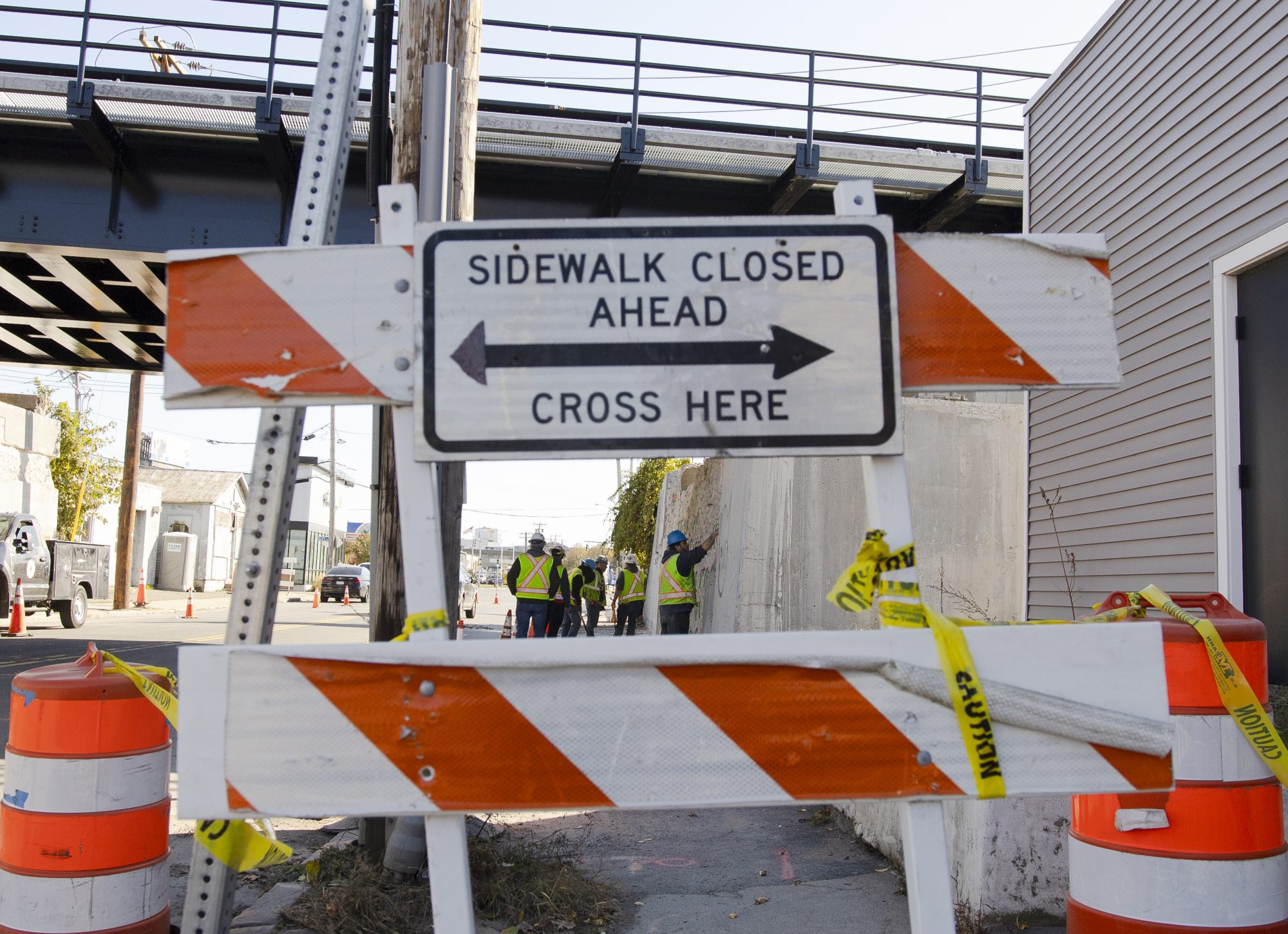LYNN — Lynn commuters, some of whom are stranded following the closure of the Lynn Commuter Rail Station at the beginning of the month, can expect to see increased public transportation costs, rising taxes, or further service cuts as the MBTA seeks funding.
In its fiscal year 2024 budget, the MBTA will see a $250 million deficit, which MBTA Advisory Board Executive Director Brian Kane said is not present in the fiscal year 2023 budget because of employee vacancies.
“The only reason there’s no deficit next year for fiscal 23 is because they [the MBTA] have so many vacancies,” Kane said. “They have money budgeted for positions that they can’t hire for. If not for that, they’d have a massive deficit.”
With the demolition of the Lynn Station Parking Garage slated for next year, and the Lynn Commuter Rail Station Rockport/Newbury line closed indefinitely for repairs, the MBTA’s bus lines, currently serving as mitigation for displaced commeters, might be significantly cut if the state can not resolve the MBTA’s financial needs in a timely manner.
“You’d see it on the bus. Where you currently have 10 minutes in between buses, you’d have 20 minutes in between buses, so they don’t have to hire an operator. And they’d use less fuel, or they would cut entire bus lines,” Kane said.
The problem with massive bus service cuts, Kane said, lies in the fact that removing $250 million from bus lines would reduce the agency to a miniscule service.
“You can’t really cut $250 million in service out of the budget without basically stopping most service And you’d be down to really a skeleton service, which probably doesn’t make a lot of sense to run and certainly wouldn’t be politically feasible or publicly accepted,” Kane said.
Sen. Brendan Crighton, who serves as chairperson of the Joint Committee on Transportation, said that the MBTA’s funding deficit dates back over 20 years. He said that the state planned to fund the agency with expected incremental sales tax increases that did not keep pace.
“It dates back to the dedicated money from the sales tax with expectations of the sales tax growing at a much faster rate than it did back in 2000, when the T had a dedicated store source of revenue,” Crighton said. “It just hasn’t kept up over time.”
When asked about potential solutions, Crighton said that, at this time, “all options are on the table.” He referenced a variety of options, from income-based fare charges to riders, in which riders from different financial standings would pay different fares, to holding out on the Fair Share Amendment on the ballot this November, which would tax residents making over $1 million annually and allocate the tax revenue toward schools and public transportation.
“There is a sense of urgency that even if the fair share amendment passes, and we do have more money towards education and transportation, longer term, it’s still not on a sustainable path. This is at a time, too, where we’re trying to, you know, protect the riders and bring ridership back,” he said.
This summer, the MBTA put $50 million into commuter rail electrification through their Capital Investment plan. Kane said that while economically-friendly projects such as rail electrification are commendable, they are financially unrealistic.
“You’ve got to put dollars behind it, or else it’s just not real,” Kane said. “Electrifying the economic justice corridor, great project, something that my organization supports 100 percent, but no one’s brought forward any proposal on how to pay for it, let alone pay to operate it. If you’re going to put more trains out there. You need more conductors, more engineers, you need more operators, you need more dispatchers that increases costs.”
On the idea of extending the Blue Line MBTA ferry to Lynn, Kane said that the Green Line extension costs the MBTA $10 million annually to operate, leaving the concept of a MBTA ferry line in Lynn unlikely given the agency’s lack of funding.
“No one has put forward a plan on how to pay for it. The T is just expected to absorb those costs. It’s not realistic and it’s not really feasible anymore,” Kane said.
Crighton said with gubernatorial elections around the corner this November, he hopes to see a new administration put more state funding toward the MBTA.
“I think we have an opportunity with the next administration coming in,” Crighton said. “The administration has long said, you know, they don’t need more money at the T. Only recently, they asked for more money, we’ve been asking them, how much money do you need for a long time, and then come back to ‘we don’t need money,’ which wasn’t the case, so I think with the new administration, we’ll have a better sense as to what the real needs are at the T to maintain a safe and reliable system.”
Regardless of setbacks and lack of funding, Crighton said the MBTA remains an iconic transportation agency that the Commonwealth needs to preserve.
“They’re [the MBTA] like the Red Sox. It’s a team that can break your heart and leave you frustrated and angry, and then, come spring training, you’re right there again, ready to be their diehard fan, we need the T to survive,” Crighton said.
Anthony Cammalleri can be reached at [email protected]

